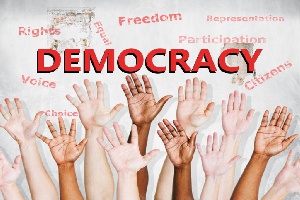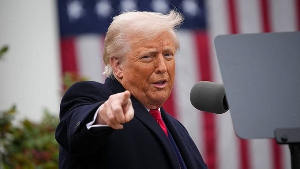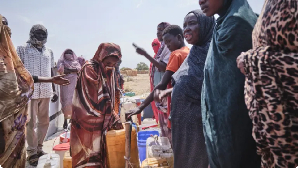Ghana is a country with a rich history and a vibrant political landscape, and its transition to a Western-style multiparty democracy in the 1990s has been a significant moment in its modern history.
While the system has allowed for political competition and representation of diverse interests through regular elections, as well as protection of civil liberties and human rights, it has also faced numerous challenges.
In this article, we will examine the effectiveness of Western-style multiparty democracy in Ghana and make recommendations for improvement.
Strengths of the System
One of the strengths of Western-style multiparty democracy in Ghana is that it has allowed for political competition, which has been key to the development of a vibrant and dynamic political landscape. Political competition has encouraged the representation of diverse interests and has provided citizens with a variety of options for political representation.
Additionally, the multiparty system has helped to protect civil liberties and human rights, as well as promote accountability and transparency in governance.
Challenges Faced
However, despite the strengths of Western-style multiparty democracy in Ghana, there have also been several challenges faced by the system. Corruption is one of the biggest challenges, as it undermines the integrity of the democratic process and undermines the ability of government to effectively serve the needs of its citizens.
Additionally, the system has been criticized for its lack of effective governance, as well as its unequal distribution of resources and opportunities, which has led to growing dissatisfaction among the population.
Analysis and Evaluation
In order to determine the effectiveness of Western-style multiparty democracy in Ghana, it is important to examine its current state and evaluate its ability to address the needs and concerns of citizens. While the system has allowed for political competition and representation of diverse interests, it has also faced numerous challenges, such as corruption, ineffective governance, and unequal distribution of resources and opportunities.
These challenges have led to growing dissatisfaction among the population and have called into question the effectiveness of the system.
Recommendations
Based on the analysis and evaluation of Western-style multiparty democracy in Ghana, the following recommendations are made for improvement:
Strengthening anti-corruption measures: The government should take strong measures to combat corruption, including the implementation of strict anti-corruption laws and the establishment of independent bodies to investigate and prosecute corrupt practices.
Improving governance: The government should focus on improving governance by increasing transparency, accountability, and responsiveness to the needs and concerns of citizens.
Addressing inequality: The government should address the unequal distribution of resources and opportunities by implementing policies and programs that promote social and economic equality
Encouraging citizen engagement: The government should encourage citizen engagement in the democratic process by promoting civic education and providing opportunities for citizens to participate in the decision-making process.
Western-style multiparty democracy has been an important part of Ghana's political landscape for several decades and has allowed for political competition, representation of diverse interests, and protection of civil liberties and human rights.
However, the system has also faced numerous challenges, such as corruption, ineffective governance, and unequal distribution of resources and opportunities. By implementing the recommendations outlined in this article, the government can work to improve the effectiveness of the system and better serve the needs and concerns of its citizens.
Opinions of Tuesday, 7 February 2023
Columnist: Dr Wilson Otchie















